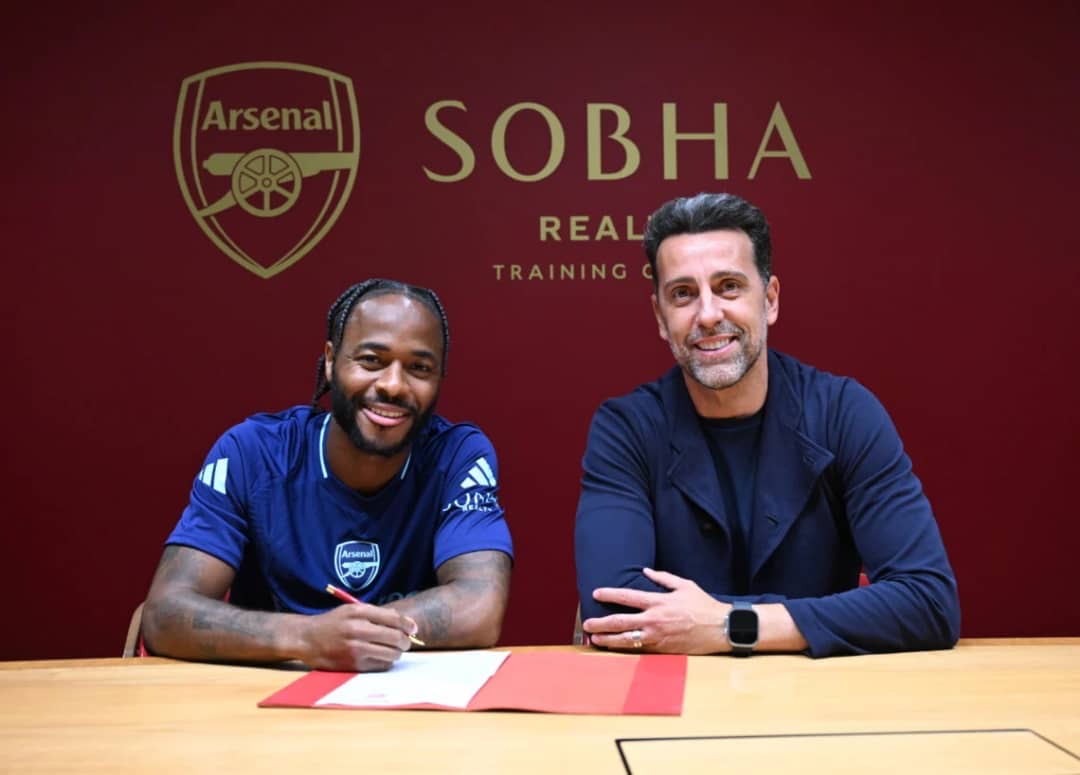Raheem Sterling, one of England’s most talented and polarizing footballers, has just signed a mega contract that comes with an eye-watering salary and a raft of benefits that have left fans and critics divided. The new deal, rumored to include a significant signing bonus, luxurious perks, and an impressive weekly wage, is a testament to Sterling’s undeniable talent. But it also raises uncomfortable questions about the state of modern football and its growing disconnect from reality.
The Good: Talent Recognized and Rewarded
There’s no denying Raheem Sterling’s ability on the field. A player known for his pace, flair, and knack for scoring crucial goals, Sterling has been instrumental in his club’s successes and a key figure for England’s national team. His new contract reflects his status as one of the top players in the world, with his employers willing to pay top dollar to secure his services.
From a player’s perspective, this deal is a deserved reward for years of hard work, dedication, and consistent performance at the highest level. Sterling’s journey from a young talent at Liverpool to a superstar at Manchester City and beyond is a classic rags-to-riches story that serves as an inspiration to many. This contract is seen by his fans as the ultimate validation of his talent and contribution to the sport.
The Ugly: An Excessive Symbol of Football’s Financial Madness?
However, for all the talent Sterling brings to the pitch, his latest deal is also a stark reminder of football’s escalating financial absurdity. The figures being thrown around in this new contract are staggering. In a world where millions are grappling with economic hardship, the sight of a footballer earning obscene amounts weekly is increasingly difficult to stomach.
Critics argue that such contracts are a glaring example of football’s skewed priorities. While clubs scramble to pay astronomical wages to keep their star players happy, grassroots football struggles for funding, and lower-league clubs are fighting for survival. The vast gulf between the earnings of top-tier players and the rest of the football ecosystem is a growing concern that many believe is unsustainable.
The Backlash: Are Fans Being Priced Out?
The financial clout behind Sterling’s contract doesn’t just highlight the inequality within football but also the growing divide between the sport and its fans. As clubs shell out millions on player salaries, ticket prices continue to soar, and the cost of watching live football becomes increasingly out of reach for the average fan.
There’s a real risk that the sport is pricing out its core supporters, with die-hard fans unable to afford the ever-rising costs associated with attending matches. Football, once the game of the people, is becoming a playground for the rich, both on and off the pitch.
Where Does This Leave Football?
Raheem Sterling’s mega contract is not an isolated case; it’s part of a wider trend that sees top players earning more than ever before. While their talent deserves recognition and reward, the question remains: at what cost to the integrity and accessibility of the sport?
The financial bubble in football shows no sign of bursting anytime soon. But as salaries continue to skyrocket, clubs and football authorities need to reassess the impact on the sport’s long-term future. If the game continues on this path, it risks alienating the very people who have made football the global phenomenon it is today: the fans.
Sterling’s new deal is a powerful symbol of football’s modern era—an era of unrivaled talent, extraordinary riches, and a widening gap between the sport’s top tier and everyone else. It’s time to ask whether football’s financial trajectory is sustainable or if the beautiful game is on the verge of losing its soul.
